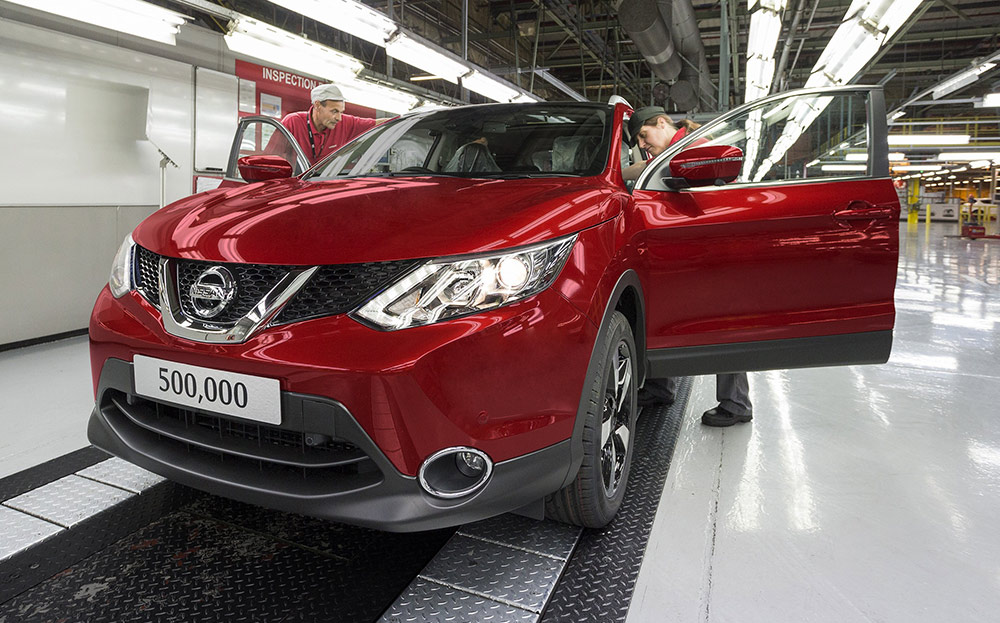South Korea claims British-built Nissan Qashqai fitted with emissions defeat devices
Company denies claims

NISSAN has been thrust into the emissions cheating scandal by the South Korean government after the country claimed that the best-selling Qashqai, built in Sunderland, has been fitted with “defeat devices” — software that can change engine characteristics during testing to improve results.
In the wake of the VW “dieselgate” emissions cheating saga, in which the German car maker admitted fitting defeat devices to 11m diesel vehicles, South Korean’s environment ministry tested 20 diesel cars. Only the Nissan Qashqai failed the test, it said.
Officials plan to fine the Japanese company 330 million won (£195,000) and order a recall of 814 Qashqai models sold in the market.
Browse NEW or USED cars for sale on driving.co.uk
Hong Dong-kon, a director at the ministry, said the SUV’s emission reduction device stopped operating when the engine’s temperature reached 35 degrees C, about 30 minutes after the engine began to work.
Other cars turn off the emission reduction device when the temperature reaches 50 degrees C, to prevent the engine from overheating, according to Hong.
“The Qashqai was the only vehicle that turned it off at 35 degrees,” he said.
When the emission reduction device stopped working, the Nissan vehicle’s level of emissions was about the same or slightly higher than that of diesel cars of Volkswagen, which was fined for cheating on emissions tests.
“All auto experts expressed the opinion that it was clearly a manipulation of the emissions reduction device,” Hong added.
Nissan disputes the accusation, saying it does not manipulate emissions data related to its vehicles and that the Nissan Qashqai has been correctly homologated under Korean regulations. It also pointed to post-dieselgate testing in the UK and Europe, where regulators found cars from other manufacturers, including Nissan, showed no evidence of using defeat devices.
In a statement, the company said: “Nissan has not and does not employ illegal defeat or cheat devices in any of the cars that we make. Furthermore, following stringent testing and using similar standards to the Korean tests, EU authorities have concluded that Nissan vehicles they tested used no illegal defeat device.”
A spokesperson said two models had been checked as part of its emissions testing programme but were not found to be manipulating the results, adding that it was too early to tell whether new tests were required in light of the latest news.
Nissan says it will cooperate with South Korean authorities: “Although the conclusions reached by the Korean authorities are inconsistent with those of other regulators, Nissan will carefully assess and consider appropriate next steps.”
More than 2m Qashqais have rolled off the assembly line at the Sunderland plant since Nissan began production of the car in 2006. It is one of Europe’s best selling cars and in February Nissan celebrated the fact that it had built more Qashqais than any other car in its three decades of manufacturing in Europe.
Last week, Nissan announced that it had agreed to buy a 34% stake in Mitsubishi, making it the largest shareholder. Mitsubishi was in the news recently after it admitted to falsifying fuel efficiency test data for decades.
The Department for Transport said that it would continue to monitor emissions investigations in other countries with interest.




